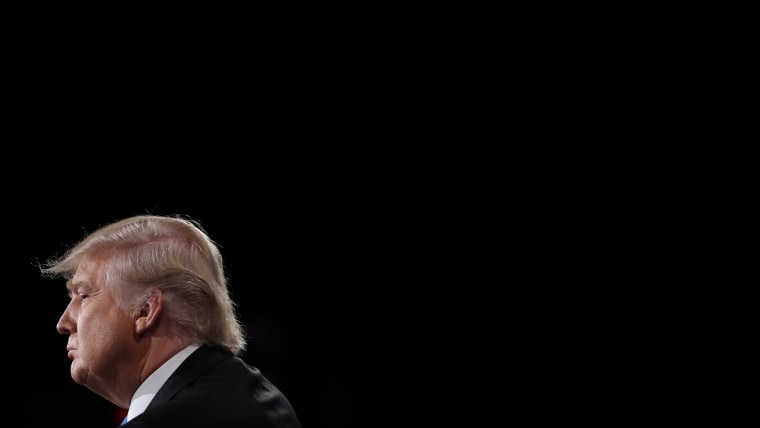It was clear during the presidential campaign that Donald Trump's international business dealings were
likely to create the mother of all conflict-of-interest controversies should the Republican win the White House. And now that the election is over, and Trump is the president-elect, those warnings may have understated matters.The fact that we knew these conflicts were inevitable doesn't make them any less problematic. The
New York Times had
this report over the weekend:
It is a daunting proposition to put $2 million apartments on the market in Pune -- a quiet industrial city in the west of India, where even the fanciest neighborhoods are lined with squat housing blocks.But the developers of Trump Towers Pune, an elegant pair of 23-story black-glass pillars, have an extraordinary new marketing tool they are moving quickly to exploit: the president-elect of the United States.Since Donald J. Trump won the presidency, they have celebrated the growth that Mr. Trump's win could bring to their brand, even flying to New York last week to meet with the president-elect and his family as he was assembling his cabinet.
Yes, the president-elect interrupted his transition schedule last week to meet with some of his Indian business partners. Journalists were not invited or notified of the conversation in advance.The discussion came around the same time Trump also met with Japanese Prime Minister Shinzo Abe --
joined by Ivanka Trump, who'll help oversee her father's business empire, and who's supposed to have no official governmental role, despite her position on the Trump transition team and reports that the president-elect wants to give her security clearance.The
Washington Post, meanwhile,
reports that foreign diplomats are booking rooms at Trump's hotel in D.C., hoping to curry favor with the president-elect. The same paper
reports today on the dangers associated with Trump's "vast assortment of foreign business interests never before seen in past presidencies," creating conditions that "could open him to foreign influence and tilt his decision-making as America's executive in chief."The
Post added that some of the potentially problematic deals are relatively new: during his presidential candidacy, Trump launched eight business deals "that appear tied to a potential hotel project in Saudi Arabia, the oil-rich Arab kingdom that Trump has said he 'would want to protect.'"And remember, Trump has
no intention, at least not yet, of creating a blind trust for his investments and private-sector enterprises.The
Huffington Post had
a good summary on the scope of the problem.
No president has ever held a fortune that spans the globe. He has licensed his name to buildings in far-flung countries, including Azerbaijan, Indonesia, the Philippines, South Korea and Turkey. Some are allies, some are ruled by autocratic dictatorships and some are at odds with American interests. Further, he owes hundreds of millions of dollars each to the government-owned Bank of China and the privately owned Deutsche Bank. The Trump Organization has plans to continue to expand the company around the globe during its namesake's presidential administration.Not only do these foreign holdings, debts and future deals present imminent conflicts of interest for American foreign policy, but they also create an immediate constitutional concern. The U.S. Constitution's emoluments clause states that no government official shall receive favorable payment from a foreign government, foreign government-owned company or foreign official without the consent of Congress. It is, in essence, an anti-bribery clause preventing foreign corruption.
RNC Chairman Reince Priebus, who'll serve as Trump's chief of staff, insisted yesterday that the White House counsel's office will "
make sure" everything's kosher. It wasn't reassuring: Priebus didn't explain exactly what steps the counsel's office would/could take, and it doesn't help address some of the ongoing questions arising now, during the transition process.It will be largely up to Congress to prevent abuses, and Democrats
are eager to hold Trump and his team responsible. But Dems will be in the minority, leaving it up to congressional Republicans to limit their own party's president.What could possibly go wrong?
